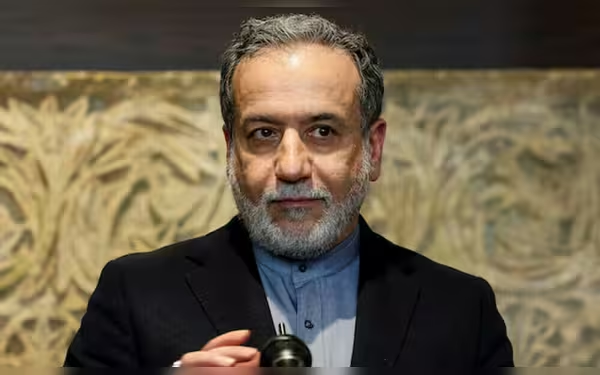Thursday, November 21, 2024 07:10 AM
Iran Warns Europe Against IAEA Censure
- Iran warns Europe over IAEA resolution plans.
- Foreign Minister condemns interference in nuclear affairs.
- Iran threatens countermeasures if resolution passes.
 Image Credits: brecorder
Image Credits: brecorderIran warns European powers against censure at IAEA, threatening countermeasures if resolution passes.
In recent developments, Iran has issued a stern warning to three European powers—Germany, France, and the United Kingdom—regarding their intentions to criticize Iran at the International Atomic Energy Agency (IAEA). This warning comes ahead of a crucial board meeting set to begin on Wednesday, where the European nations are expected to present a resolution aimed at increasing diplomatic pressure on Iran to comply with nuclear regulations.
Iran's Foreign Minister, Abbas Araghchi, expressed his discontent during a conversation with his French counterpart, Jean-Noel Barrot. He "strongly condemned the decision of the three countries" to move forward with the draft resolution, asserting that such actions would only "complicate the matter further." This statement reflects Iran's frustration with what it perceives as unwarranted interference in its nuclear affairs.
According to diplomats, the European powers are planning to table the resolution at the IAEA's headquarters in Vienna, with a vote likely to occur on Thursday. The resolution is seen as a response to the IAEA's ongoing concerns about Iran's nuclear activities and aims to push Tehran back into compliance with the terms of the 2015 nuclear deal, which has been under strain since the United States withdrew from it in 2018.
During a recent visit to Tehran, Rafael Grossi, the head of the IAEA, toured Iran's major enrichment sites, including Fordo and Natanz. While Iran viewed this visit positively, the country’s nuclear chief, Mohammad Eslami, has warned against any "interventionist resolution" that targets its nuclear program, threatening "immediate countermeasures" if such a resolution is passed.
Reports from the IAEA indicate that Iran has made strides toward halting the expansion of its stockpile of highly enriched uranium. However, tensions have escalated since the 2015 agreement, which was designed to limit Iran's nuclear capabilities in exchange for sanction relief. Following the U.S. withdrawal, Iran began to step back from its commitments, increasing its uranium enrichment levels significantly.
As of October 26, Iran's stockpile of enriched uranium was reported to be over 32 times the limit set by the 2015 deal, amounting to approximately 6,604.4 kilograms. This alarming increase has raised concerns among international observers, as Iran is the only non-nuclear weapon state to enrich uranium to such high levels.
In light of these developments, Araghchi has stated that Iran is "willing to negotiate" based on its "national interest" and "inalienable rights," but firmly opposes negotiations conducted under pressure. He has also warned that if a resolution against Iran is passed, the country would respond with "new measures" in its nuclear program that would not be favorable to the European powers.
The ongoing situation highlights the delicate balance of diplomacy and the complexities surrounding Iran's nuclear ambitions. As the IAEA board meeting approaches, the world watches closely, hoping for a resolution that fosters dialogue rather than further escalates tensions. The outcome of this meeting could have significant implications not only for Iran but for global security and diplomatic relations in the region.













